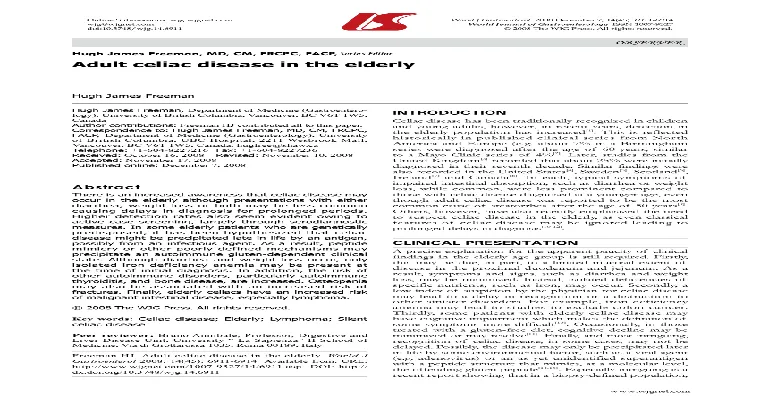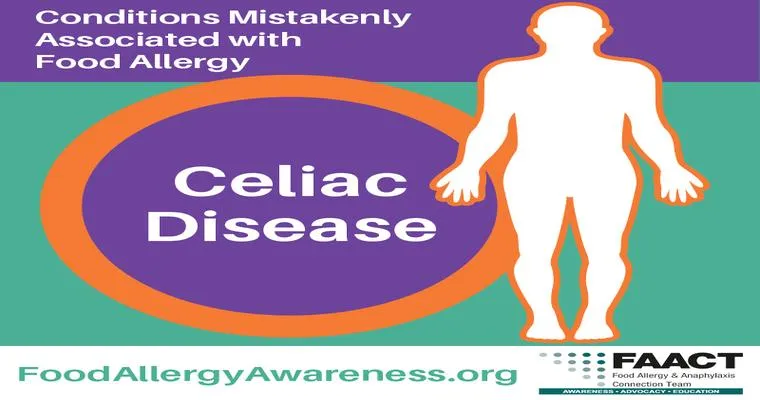Celiac disease is a serious autoimmune disorder that affects a significant portion of the population, including the "elderly". It occurs when the ingestion of "gluten", a protein found in wheat, barley, and rye, leads to damage in the small intestine. Unfortunately, many "older adults" may be unaware that they have this condition, as the symptoms can often be mistaken for other common issues associated with aging. This article will explore the implications of celiac disease in the elderly, its symptoms, diagnosis, and management options.
Celiac disease can manifest differently in older adults compared to younger individuals. While children often present with gastrointestinal symptoms such as diarrhea, bloating, and abdominal pain, the elderly may experience more subtle signs. These can include "unexplained weight loss", "fatigue", anemia, and even neurological symptoms like "depression" or "cognitive decline". As these symptoms can overlap with other age-related conditions, the diagnosis of celiac disease in older patients can be particularly challenging.
One of the key factors contributing to the underdiagnosis of celiac disease in the elderly is the misconception that it is a childhood condition. Many healthcare providers may not consider celiac disease when faced with an older patient presenting with gastrointestinal or vague systemic symptoms. Consequently, it is crucial for both patients and healthcare professionals to maintain a high index of suspicion, especially for those with a family history of celiac disease or related autoimmune disorders.
Diagnosis of celiac disease typically involves a combination of blood tests and an intestinal biopsy. Blood tests can detect specific antibodies, such as tissue transglutaminase antibodies (tTG-IgA) and endomysial antibodies (EMA). If these tests are positive, an intestinal biopsy is usually performed to assess the extent of damage to the small intestine. It is essential for individuals to continue consuming gluten until all testing is completed to ensure accurate results.
Once diagnosed, the primary treatment for celiac disease is a strict "gluten-free diet". For older adults, adhering to this diet can pose unique challenges. Dietary restrictions may limit food choices, and individuals may experience social difficulties when dining out or attending events. Additionally, there may be concerns regarding nutritional deficiencies, as gluten-containing grains often provide essential nutrients. Therefore, it is important for elderly patients to work with a registered dietitian who can help them create a balanced, gluten-free meal plan that meets their nutritional needs.
In addition to dietary management, regular follow-up with healthcare providers is essential for monitoring the condition. This includes periodic blood tests to assess antibody levels and ensure adherence to the gluten-free diet. Older adults may also benefit from additional support, such as counseling or support groups, to help them navigate the challenges of living with celiac disease.
In conclusion, celiac disease is a condition that can significantly impact the health and quality of life of the "elderly". Awareness of its symptoms and proper diagnosis are crucial for effective management. By embracing a gluten-free lifestyle and seeking appropriate medical support, older adults with celiac disease can lead fulfilling lives and mitigate the risk of complications associated with this autoimmune disorder. If you or a loved one are experiencing symptoms consistent with celiac disease, it is important to consult a healthcare professional for evaluation and guidance.





